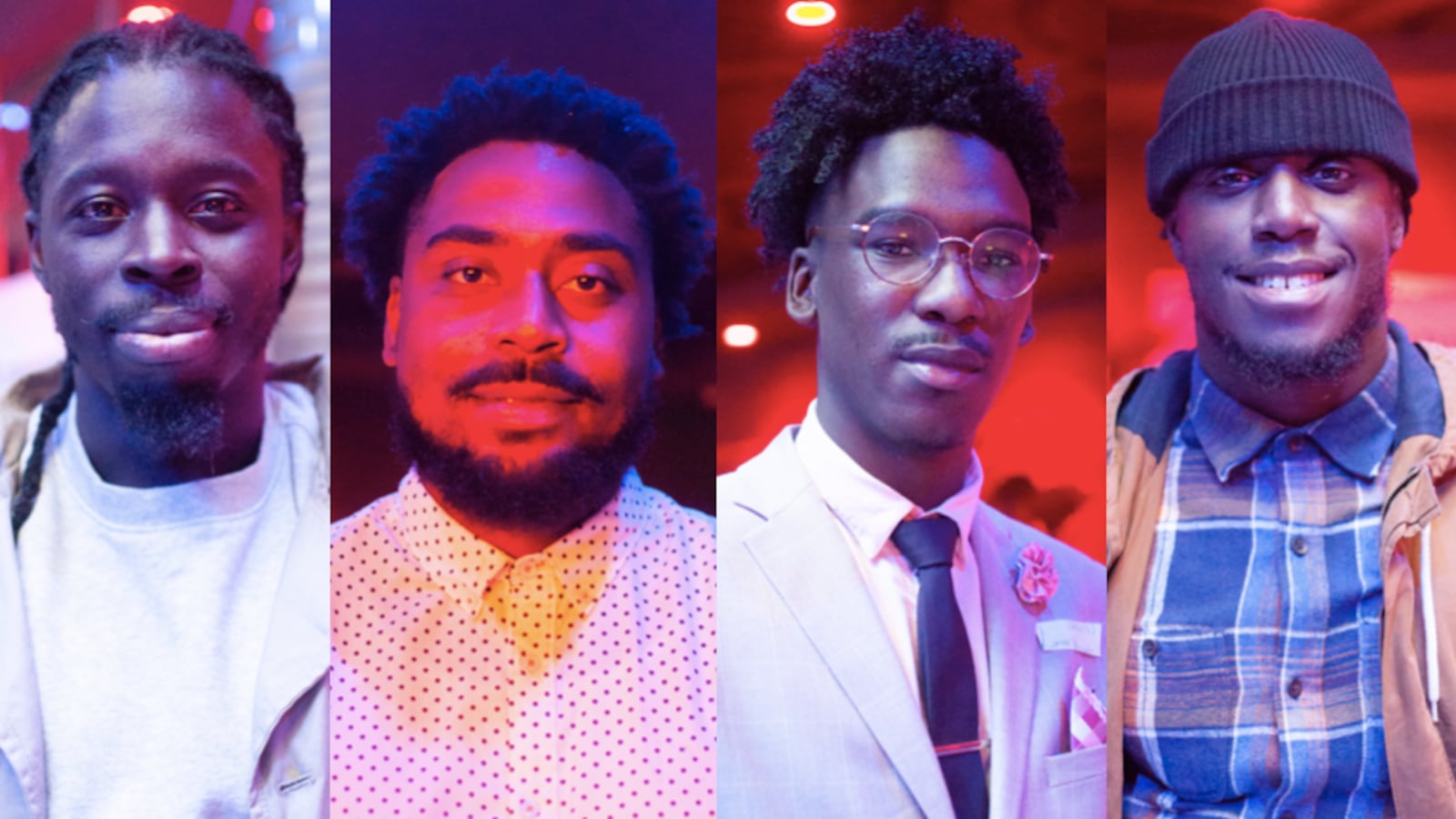Even in Newark, where some 90% of students are black or Hispanic, male educators of color make up just 13% of the district’s teaching force.
“We cannot stand for that, we cannot stand for that,” a group of teachers, all men of color, were prompted to chant as they gathered Friday for a happy hour at the TRYP Hotel in downtown Newark. They numbered more than 100 and had come representing local traditional, charter, and independent schools.
Across the country, about 20% of teachers are people of color, and black men make up a mere 2% of U.S. teachers. In Newark, that percentage is slightly higher, around 8%, but Roger León — Newark Public Schools’ first Latino superintendent, who was at the gathering — acknowledged that there’s much more work to do.
My Brother’s Keeper Newark (part of the Newark Opportunity Youth Network), the Chad Foundation, and Newark Trust for Education hosted the gathering, where León also spoke about the overrepresentation of black male students in special education in and beyond Newark, and black and Hispanic male students’ disproportionately low scores on state tests. Research shows that when students have teachers who look like them, their academic performance improves.
The superintendent noted that “there’s a lot of promise in the work ahead.”
“It’s going to involve everyone here … and a lot of criticism because this is hard work that no one has ever tackled,” said León, whose district plan for this school year prioritizes recruiting and retaining more black and Latino male educators. “Not only am I going to tackle it, but I know with the great people in this room, we will do it.”
Chalkbeat caught up with some of the teachers at the event. (Some attendees, including several educators from district-run schools, declined to comment.) Here’s what they had to say.
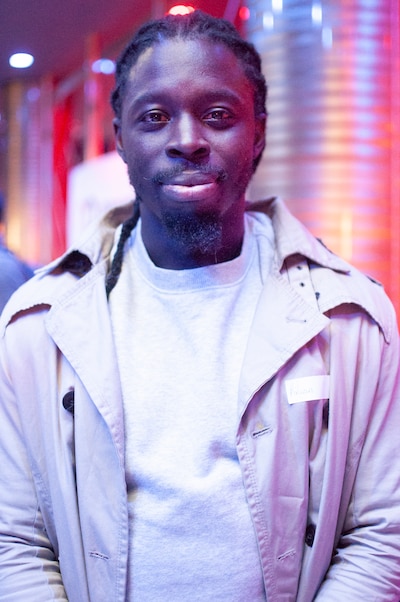
Rilwan Adeniran
4th-grade math teacher, KIPP Life Academy
Describe a time when you had an impact on students because of who you are: My first and second year of teaching, I noticed it was very impactful to the young boys. They looked up to me because they never had seen a teacher of my status who looked like them, had hair like them, talked like them. And I communicated with them with a certain level of understanding. I saw the impact of that in their test scores, which increased. I saw that impact in their participation and engagement and love for school. Now I’m in a new school, and I have a student that comes to mind that had a rough time last year. This year it’s been a complete change. He tries his best in math this year. He said, “I’m this way because of you. You do everything I like — Naruto [comics], sneakers, video games. And you helped bring out a love for math in me. And I’m trying my best because I want to be a math master like you.”
Your advice for getting more men of color into classrooms: Put us in leadership positions. We’re very underrepresented in the classroom, but also very underrepresented in leadership roles in the school. We’re just looked at as being authoritative figures and disciplinarians, but we can be deans, assistant principals, and principals, too.
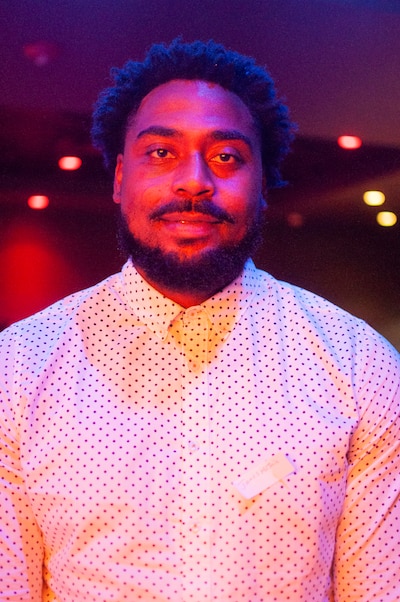
James Mathis
10th-grade special education teacher, New Jersey Regional Day School
Describe a time when you had an impact on students because of who you are: We have a lot of male students who are autistic. Just by being a black male, being from the same area they’re from, they have a lot of questions they don’t feel comfortable asking other people. Being from Newark, I think it’s important for me to be there to answer some of these questions for them. You don’t know what their home situation is. A lot of the people in the building can’t relate to them. I think it’s important, especially for our children to have people that look like them. That familiarity does a lot for them, as far as opening up and being able to have a conversation.
Your advice for getting more men of color into classrooms: I wish I had an answer. I kind of fell into teaching by way of wanting to help out kids who look like me and give back to my city. It progressed to being a teacher. I’m from around the corner where the school is. I grew up playing basketball in the park. I feel like I’m doing something worthwhile, and it gives me a sense of community.
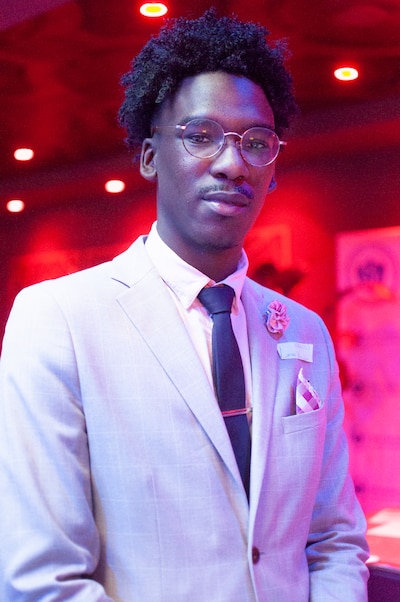
Lamar Washington
Event organizer, Great Oaks Legacy Charter School
Describe a time when you had an impact on students because of who you are: When I initially started teaching, just being one of the very few people who stood at the front of the classroom that looks like them and is from the same community they’re from, it made an immediate impact on my students. I got their attention, and they wanted to know everything about me. They felt comfortable disclosing information to me that I felt like they didn’t want to tell anyone else. Having representation in the community you live in is important. It motivates people.
Your advice for getting more men of color into classrooms: Just continue to create opportunities for them to get involved. It may not look like a traditional classroom position. For example, right now I’m an event organizer for Great Oaks. I started out as a teacher, and the opportunity presented itself for me to impact people on a larger platform. But I still have that same effect on youth in our community.
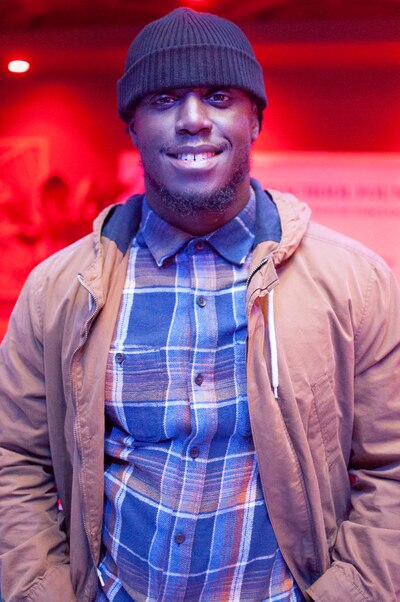
Isaac Abankwa
Kindergarten P.E. teacher, KIPP Upper Roseville Academy
Describe a time when you had an impact on students because of who you are: There are some children in Newark that don’t grow up in a two-parent household, so just being a man, a positive male figure, can be very influential. One student comes to mind who didn’t enjoy school or reading. I found a way to make it cool and relate it to sports. His reading level grew tremendously from that experience. When they see you, they see themselves, and I think that’s very important.
Your advice for getting more men of color into classrooms: I say this because I’ve been in education for a while. I’ve noticed that there’s always talk about, “We need more men of color, we need more men of color,” but when you actually look at the recruitment process, I don’t see the effort. I also think we should support the male teachers that are there. It’s hard to understand if you aren’t a man of color, but there’s not a lot of support for male teachers. I feel like other teachers have chances to make mistakes and progress, and we’re not considered in the same way. You don’t get the same opportunities. You’re looked at like you only deal with behavior, not necessarily how you can push students academically. If they genuinely want more male teachers in schools, that’s what they can do.

